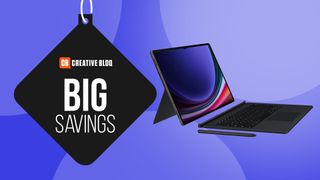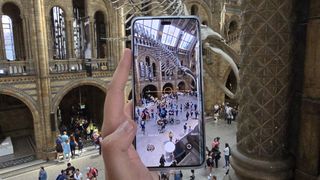Why the Apple Watch is not a sustainable brand
The Apple Watch is released this week. But Rebellion's Jason Kingsley OBE questions whether it can truly infiltrate the lucrative watch market.
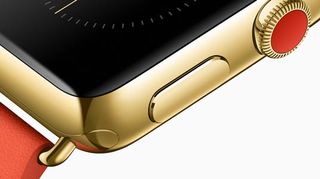
When Xbox first showcased its ill-fated console with an 'always on' infra-red camera, the tech guys couldn't see beyond the positives of an Xbox One that would identify the gamer sitting on the sofa in front of it and respond to different voice controls because it was always recording.
Those of us in the gaming industry pointed out that a camera that could see in the dark, was hooked up to the internet, was always on and pointed at someone's sofa would at best be considered an invasion of privacy and, at worst, result in a new illicit trend of web-streaming sofa-sex.
But the techies appeared genuinely surprised that anyone would suggest such a thing.
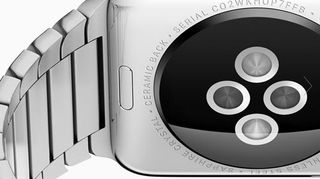
This is often a problem with new technology. The talented people who bring it to market rarely prioritise the glaringly obvious social negatives over the one big positive of having genuinely exciting new technology for us to play with.
When Apple Watch launches next week, there is sure to be the usual hype and excitement. By all accounts, more than one million watches will sell over the first weekend, surpassing sales of the first iPhone and iPod during the same period.
However, what happens when the thrill of owning new technology fades? The reality kicks in of choosing either a brilliant box of wires that knows where you are and how fast your heart is beating, or a engineered heritage watch brand such a Breitling or Tag Heuer.
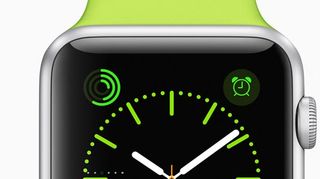
I'm as excited as the next person to see Apple Watch and play with the first generation of apps that have been devised for this gadget. But, I'm not convinced it will ever gain the value of anything more than a fairly disposable gadget.
For it to truly compete in the watch sector, it would need longevity as a fashion or heritage item of true, timeless worth.
Why people wear watches
The Apple tech guys appear to have ignored or avoided grappling with this principal reason why people wear watches. A watch is often something that is gifted or passed down to you, or it is something you buy as a status symbol to communicate wealth or fashion sense.
What happens when Apple Watch 2 is produced?
A heritage watch brand is an intricate encasement of cogs and dials that has real and long-lasting jewellery value. But a gadget is simply a fantastically exciting box of wires that quickly becomes obsolete when a more advanced box of wires is invented.
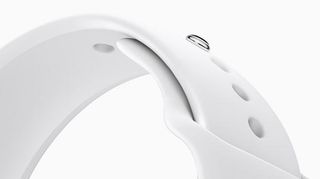
I've got many older computers and phones, gathering dust in a cupboard, saved in my own personal 'museum of past technology glories'.
When was the last time somebody bequeathed a Nokia 3210?
In the long run
Apple Watch will witness a decent initial success. The first generation of tech-embracing keen owners will enjoy using the watch's in-built NFC technology to open car doors, pass through ticket barriers and unlock the hotel rooms of the not-to-distant future.
But once all the initial hype around functionality has died down, and a few mildly amusing technological cock-ups have been reported, all eyes will turn to the watch's much-anticipated app store and how brand marketers intend to reimagine content for a screen of this size. This will determine whether or not Apple Watch has true staying power.

As a platform that allows other people to accessorise it, Apple Watch owners may be able to demonstrate status and personality through the apps they own. I don't think we'll be seeing a new generation of successful watch games anytime soon, though.
There are too many limitations over screen size, not withstanding the fact that you'd have to play one-handed since the screen is attached to the other hand.
The main issue for me however, is the one thing that doesn't appear to have been considered. Would you really lock that heritage timepiece that everyone admires away in a drawer in favour of an amusing yet, ultimately disposable gadget? You can't non-risibly wear two watches after all. That would simply look ridiculous.
Words: Jason Kingsley
Jason Kingsley OBE is co-founder and creative director of games developer Rebellion.
Like this? Read these!
- How Apple Watch will change apps forever
- How to build an app: try these great tutorials
- The ultimate guide to logo design

Thank you for reading 5 articles this month* Join now for unlimited access
Enjoy your first month for just £1 / $1 / €1
*Read 5 free articles per month without a subscription

Join now for unlimited access
Try first month for just £1 / $1 / €1
Get the Creative Bloq Newsletter
Daily design news, reviews, how-tos and more, as picked by the editors.
The Creative Bloq team is made up of a group of design fans, and has changed and evolved since Creative Bloq began back in 2012. The current website team consists of eight full-time members of staff: Editor Georgia Coggan, Deputy Editor Rosie Hilder, Ecommerce Editor Beren Neale, Senior News Editor Daniel Piper, Editor, Digital Art and 3D Ian Dean, Tech Reviews Editor Erlingur Einarsson and Ecommerce Writer Beth Nicholls and Staff Writer Natalie Fear, as well as a roster of freelancers from around the world. The 3D World and ImagineFX magazine teams also pitch in, ensuring that content from 3D World and ImagineFX is represented on Creative Bloq.
